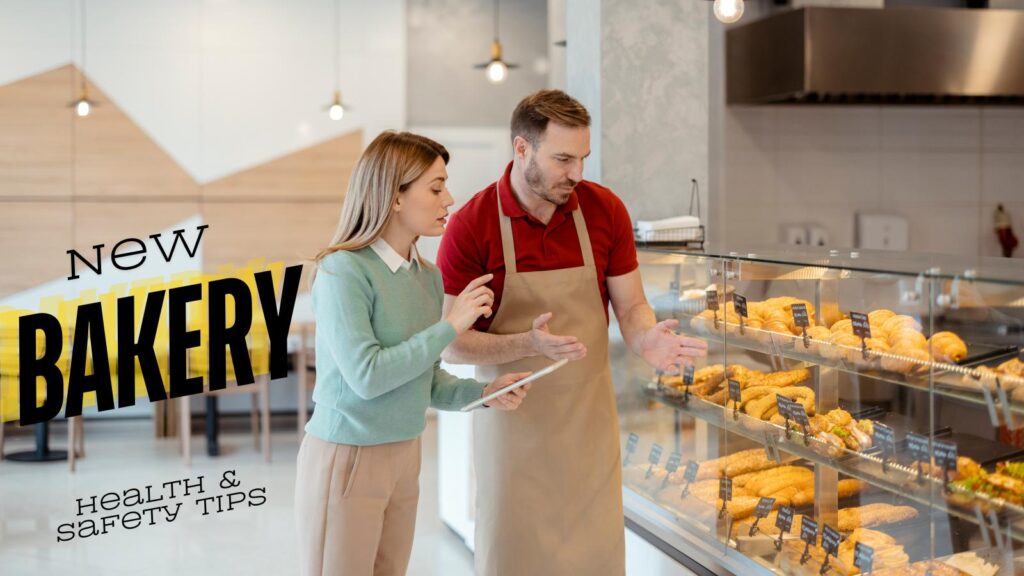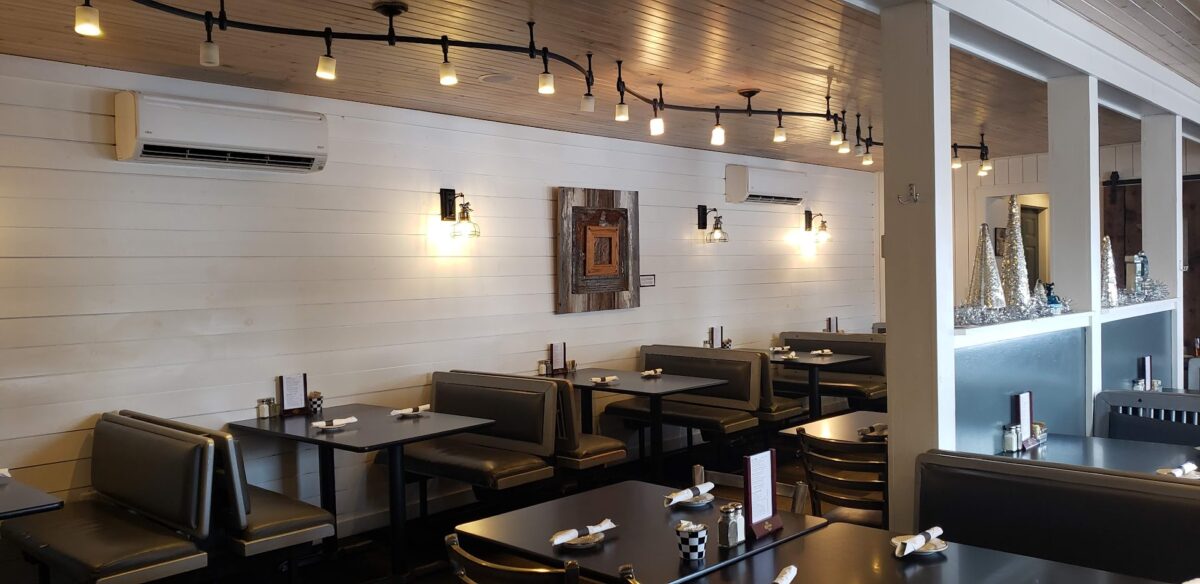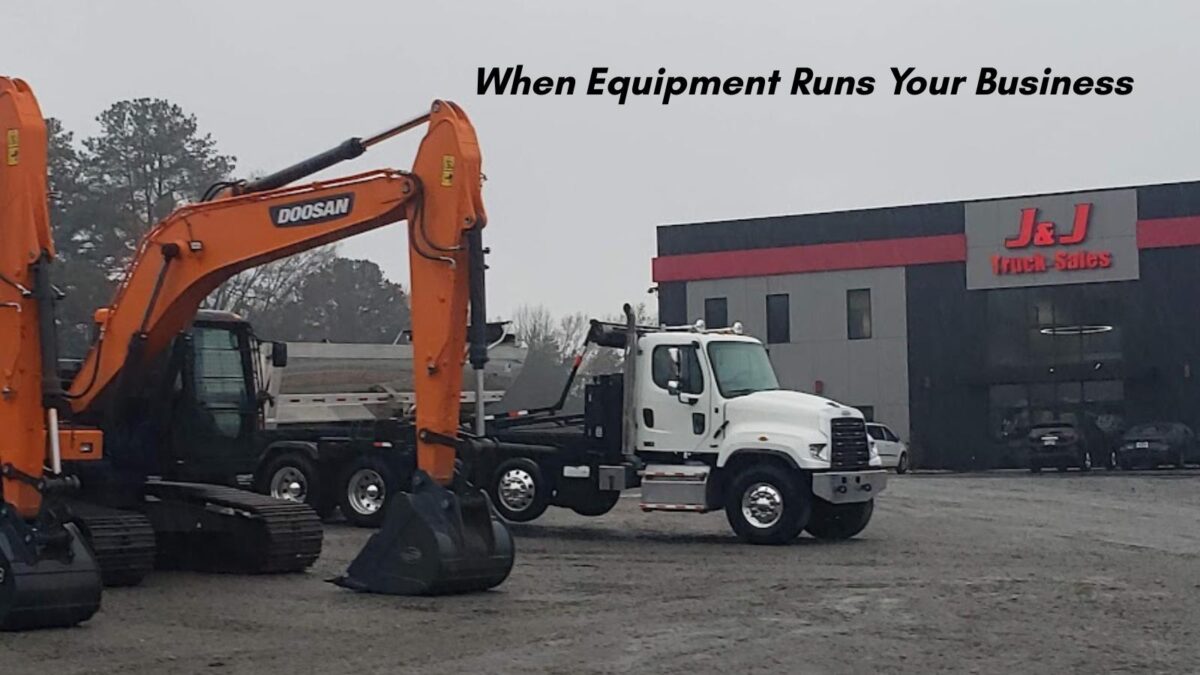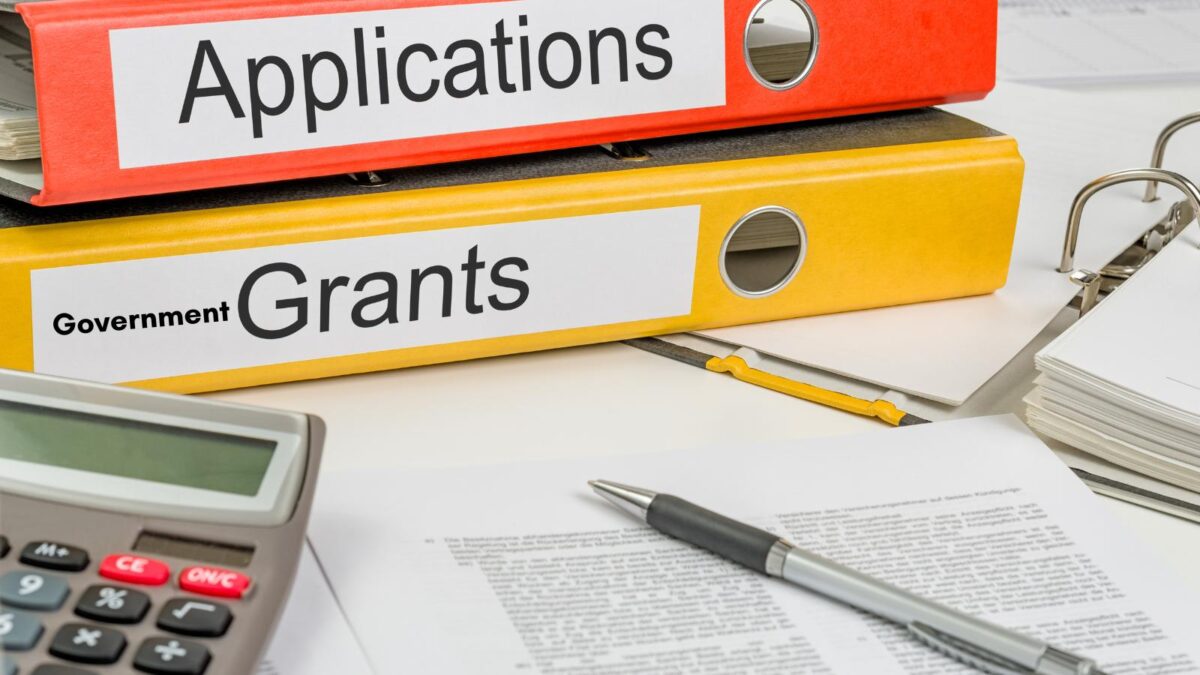One of the largest industrial sectors across the globe is food and drink manufacturing. Thinking of starting a new bakery?
The bakery subsector of this represents almost 1/4 of that workforce. Think about all of the times you’ve ordered your morning croissants or you’ve opened a loaf of bread to make toast.
Table of Contents
Why Bakeries?
Bakeries have early starts and late finishes and they need a skilled workforce with non-stop work in between to be able to bring you what you want for your breakfast.
If you decide to open your own bakery, then adhering to health and safety standards is a big part of that. Sometimes these can slip, but they never should.
New Bakery Health and Safety Tips
If you want to make sure that you remain compliant and on the top with health and safety for your new neighborhood bakery cafe, take a look at these tips below.
Right Equipment
Use the right equipment. You need food to stay fresh whether you are in the middle of using it or not. If you’re putting it out in your bakery windows, you still need to be able to store it overnight and using the right equipment, such as a food tray sealer machine can help.
With the right equipment, you can maintain freshness in your food and you can ensure that no bugs or bacteria grow. The right equipment will ensure that you can offer fresh food consistently at your new bakery.
Train Your Team For The New Bakery
Train your team.One of the best health and safety tips that your new bakery needs is there. Anybody who works there should be trained correctly on how to handle occupational hazards.
Cuts, slips and falls should be trained particularly so that staff don’t have to deal with potential hazards, and if they do, they can do it quickly and efficiently.
Baking ingredients can also trigger allergic reactions such as dermatitis and asthma, so teaching staff about the risks and about wearing the appropriate gear is important.
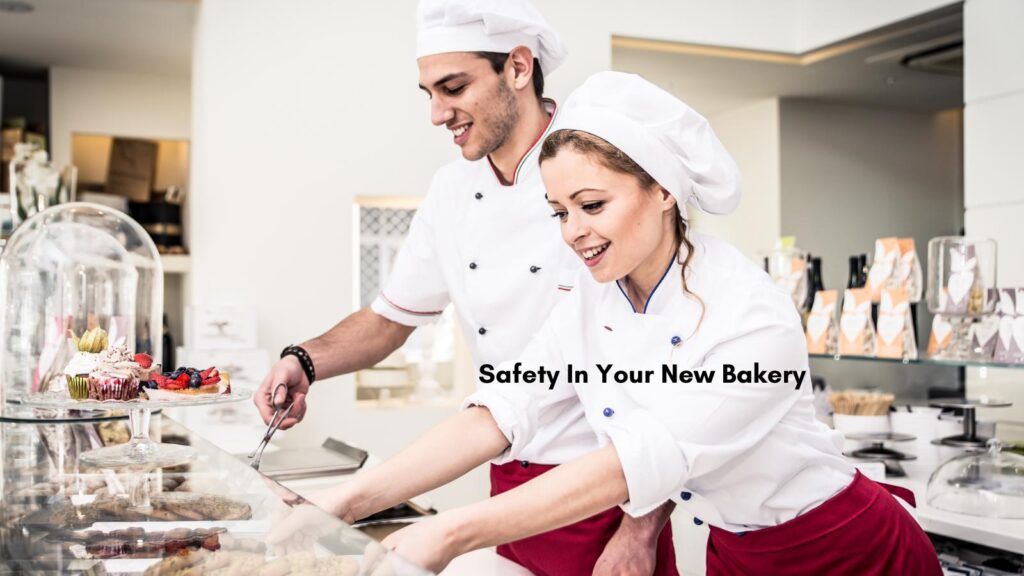
Sanitation for Bakeries
Emphasize sanitation. If your employees don’t know the risks of cross contamination, that’s a problem. In a food based business, preventing cross contamination is important, so you need to ensure that employees respect and understand the rules.
Regularly training them to properly sanitize their workspaces, their hands at any equipment they might use can ensure that you don’t cross, contaminate and spread bacteria throughout your bakery.
This could potentially make your customers sick and putting yourself at risk of a lawsuit.
Training For New Bakery
Train everybody on the right equipment. If you’re going to be using large pieces of equipment in your bakery, which you will if you’re baking en masse, then you need to ensure that staff members know how to use it correctly.
They need to be quick but efficient, and they need to make sure that they are maximizing their productivity and that’s your job.
Conclusion: Health and Safety of New Bakery
Your bakery is going to thrive if you are consistent with health and safety. You won’t come under fire with a lawsuit, and you won’t be sued by somebody because something’s gone wrong.
The better you do for your people, the better your bakery will do overall.
Bakery Health and Safety: Essential FAQs for New Owners
What are the basic health and safety requirements for a new bakery?
To start, get your food business license and pass local health inspections. You’ll need proper food handling, sanitation, and equipment maintenance practices. Ensuring safe workspaces for employees is also crucial.
How can I ensure my bakery is allergen-friendly?
Clearly label all baked goods with allergens like nuts, soy, and dairy. Train staff on cross-contamination prevention. Consider offering allergen-free options to cater to all customers.
What steps should I take to maintain food hygiene?
Instill regular handwashing protocols for staff. Clean and sanitize work surfaces and equipment frequently. Store ingredients properly and monitor expiration dates to prevent spoilage.
How do I implement pest control in my bakery?
Schedule regular pest inspections and maintain cleanliness to deter pests. Keep ingredients in sealed containers. Address any suspected infestations immediately with professional help.
How can I train my staff in health and safety practices?
Develop a comprehensive training program covering personal hygiene, safe equipment operation, and emergency procedures. Conduct regular refresher sessions and keep records of all training activities.
What emergency procedures should be in place?
Create a clear plan for dealing with fires, injuries, or other emergencies. Ensure exits are well-marked and never blocked. Equip your bakery with first aid kits and fire extinguishers.
How often should I clean equipment and surfaces?
Clean all equipment and surfaces daily, with deeper cleanings scheduled weekly. Follow manufacturer guidelines for specific cleaning methods and products.
How can I avoid cross-contamination in my bakery?
Use separate tools and surfaces for handling allergens. Implement strict storage solutions and cleaning protocols. Educate staff on the importance and methods of avoiding cross-contamination.
How do I safely store raw ingredients and finished products?
Store perishable items at appropriate temperatures in designated areas. Keep raw and finished products separate. Regularly check storage conditions and rotate stock to use older items first.
What documentation is necessary for compliance?
Keep detailed records of health inspections, cleaning schedules, staff training, and equipment maintenance. These documents should be readily available for review by health officials.
